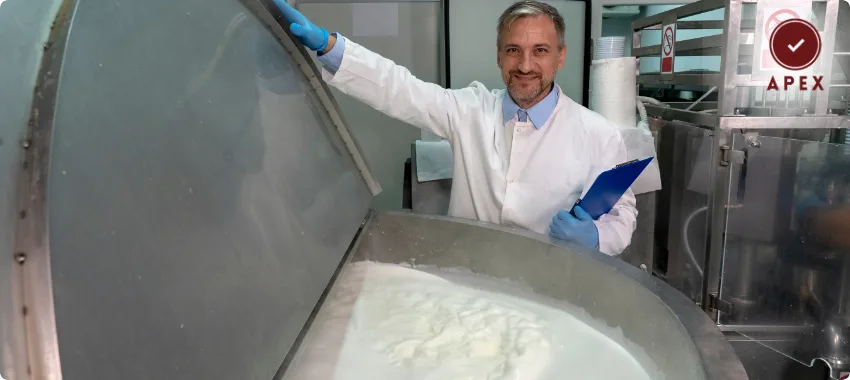Halal Certification in Fujairah

With its increasingly prosperous food, hospitality, and manufacturing industries, Fujairah strongly emphasizes the fulfillment of Islamic dietary and production standards. The halal certification procedure results in the assurance that the products and the processes meet the requirements of UAE/S/GSO Halal standards and, therefore, could be granted to Muslim customers.
Food producers, slaughterhouses, restaurants, catering, cosmetics, and pharmaceutical firms in Fujairah can use the Halal certification to gain local, regional (GCC), and international Halal markets. The certification has steps of receiving applications through forms, review of documents, on-site visit, and verification by an authorized Halal Certification Body registered under the UAE Ministry of Industry and Advanced Technology (MoIAT).
In the UAE Islamic community, Fujairah supports the Halal Certification with the local domestic legislation together with the international market needs.
Importance of Halal Certification in Fujairah
The necessity of obtaining Halal Certification is increasing within Fujairah because of multiple reasons.
- Regulatory Compliance: All food products and consumer items at both local manufacturing and sales levels in the UAE must meet Islamic standards as per national law. The Halal Certification means participating companies must obey both UAE and GCC regulatory standards along with ESMA-issued guidelines from the Emirates Authority for Standardization and Metrology.
- Market Access to Muslim Countries: Businesses located in Fujairah that achieve Halal Certification can successfully export their products to the Halal requirement areas spanning the Middle East and Southeast Asia. The certification must be halal in all imported goods from Indonesia, Malaysia, Saudi Arabia, Pakistan, and Egypt.
- Consumer Trust and Brand Reputation: Current Muslim consumers demonstrate consistent awareness about where their products come from. The Halal Certification system creates both trust in products and establishes solid brand name quality. Modern consumers who are not Muslim customers tend to buy certified Halal products because the products symbolize cleanliness and ethical treatment standards along with high quality.
- Competitive Advantage: The modern global economy and regulatory standards require halal certification to establish your brand as different from the competition. Organizations in Fujairah that want to develop their market presence abroad can find great benefits from obtaining this certification.
Who Needs Halal Certification in Fujairah?
Any company doing business in the industry of food manufacturing at minimum requires mandatory Halal Certification or finds significant benefits from attaining it.
- Food & Beverage Manufacturing
- Restaurants & Catering Services
- Hotels & Hospitality Providers
- Pharmaceuticals and Nutraceuticals
- Personal Care and Cosmetics
- Slaughterhouses
- Logistics and Warehousing (handling Halal goods)
The Halal certification exists also for non-Muslim organizations and businesses that are owned by non-Muslims. A halal-conscious marketing audience receives advantages from halal certification for any commercial entity that serves them.
Process of Obtaining Halal Certification in Fujairah
To obtain Halal Certification, companies must follow specific steps that verify full compliance with Islamic religious law.
- Application and Document Submission: The business presents an application containing essential details to an accredited Halal certification body.
- Product details
- Ingredient lists
- Manufacturing processes
- Packaging and storage procedures
- Evaluation of Ingredients and Suppliers: Every ingredient and source undergoes analysis by the certifying body, which checks for haram substances to be absent.
- Pork or its derivatives
- Alcohol
- Non-Halal animal-based materials
- Cross-contaminated ingredients
- On-site Inspection: The facility receives regular site visits to check production activities together with hygiene standards, storage systems, and distribution control processes. Additional separate tools and equipment need to be implemented to prevent contamination.
- Compliance with UAE Halal Standards: Organizations need to fulfill standards from the UAE's GSO 2055 series alongside requirements from the Emirates Authority for Standardization and Metrology (ESMA), which the Emirates Standards and Metrology Authority (MoIAT) currently oversees.
- Issuance of Halal Certificate: The Halal Certificate becomes available after completing verification checks. Companies must participate in routine audit procedures to maintain the validity of their one-year certificate.
Maintaining Halal Certification
Businesses that have obtained certification must maintain Halal compliance standards through four requirements:
- Regular internal audits
- Documentation of all changes in suppliers or ingredients
- Training employees on Halal compliance
- Periodic inspections by the certification body
Non-compliance leads to certificate revocation together with possible legal penalties and reduces brand reputation value.
- ISO 9001 Certification in Fujairah
- ISO 14001 Certification in Fujairah
- ISO 45001 Certification in Fujairah
- HACCP Certification in Fujairah
- ISO 22000 Certification in Fujairah
- GMP Certification in Fujairah
- Halal Certification in Fujairah
- ISO 27001 Certification in Fujairah
- ISO 22301 Certification in Fujairah
